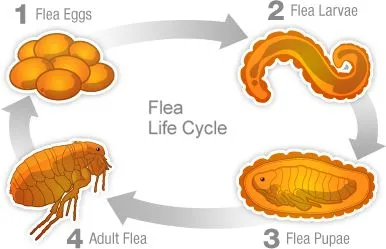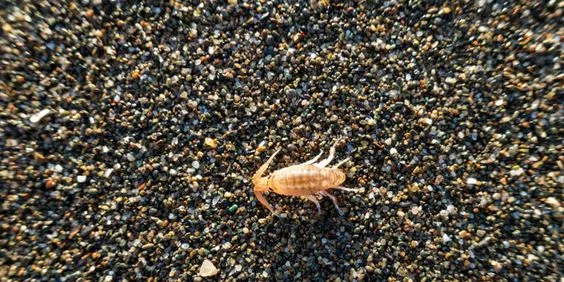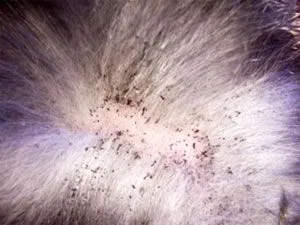When it comes to naming your beloved canine companion, the possibilities are as diverse as the breeds themselves. We’ll explore a curated list of unique and distinctive dog names that go beyond the ordinary. Whether you’ve just welcomed a new pup into your home or you’re considering a rebrand for your furry friend, we’ve got you covered.
Baer: A German Twist
Baer may seem familiar, as there are plenty of dogs named Bear, but why not give yours a touch of continental charm with the German spelling? It’s a subtle twist that sets your dog apart.
Baby: Because They’re Family
Let’s face it; your dog is more than just a pet; they’re family. So why not embrace it with a name like Baby? It’s a playful yet endearing choice that reflects your deep bond.
Baguette: A Taste of France
The French are known for their culinary prowess, and Baguette is a quintessential French loaf. It’s a whimsical choice that celebrates your dog’s unique character.
Bailey: Friendly and Approachable
Names ending in “y” exude friendliness, mirroring the warmth you feel towards your new pet. Bailey is a perfect embodiment of this sentiment.
Baize: A Touch of Elegance
Originally a girl’s name of French origin, Baize translates to “dark brown.” This name exudes a touch of elegance and mystique, perfect for a distinguished dog.
Baloo: The Loyal Friend
Fans of Disney’s “The Jungle Book” will instantly recognize Baloo as the big, friendly bear who is a loyal friend to Mowgli. It’s a name that brings a touch of whimsy and nostalgia.
Balto: A Heroic Legacy
Balto is inspired by a true story of a heroic Siberian Husky who led the sled that brought the diphtheria vaccine to Nome, Alaska. It’s a name that honors bravery and resilience.
Bambalina: Italian Elegance
This Italian name, meaning “little girl,” adds a touch of Mediterranean charm. You can also shorten it to Bamba or Lina for a more casual feel.
Bandit: For the Mischievous
If your dog has a knack for pilfering items around the house, Bandit is a fitting choice. It’s a name that playfully acknowledges your pet’s antics.
Banjo: A Musical Note
Banjo is a two-syllable name with a musical ring to it. If your dog’s presence is music to your ears, this name is a harmonious choice.
Bard: A Tribute to Poets
Derived from Irish origins, Bard means “poet” or “minstrel.” It’s a name that speaks to the eloquence and charm of your four-legged friend.
Bardot: A Touch of Elegance
Harkening back to the iconic French actress from the 1960s, Brigitte Bardot, this name adds a touch of sophistication and timeless allure.
Barney: Presidential Pooch
Barney was the Scottish Terrier of President George W. Bush. It’s a name that carries a sense of regal charm.
Baxter: The Baker’s Buddy
Originally meaning “baker,” Baxter is a delightful choice, especially if your dog has a sweet tooth. It’s a name that captures their love for treats.
Baya: The Spanish Flair
Baya, the Spanish word for “berry,” infuses a touch of Latin vibrancy into your dog’s identity.
Bean: A Coffee-Inspired Delight
If you’re a coffee aficionado, Bean is a charming nod to the coffee bean. It’s a name that suits pups with an energetic and perky personality.
Bear: A Snuggly Companion
Bear is an endearing name for any pup that resembles a snuggly teddy bear. It’s a moniker that captures their cuddly nature.
Beast: A Humorous Twist
For smaller pups with a sweet and cuddly disposition, Beast adds a playful, ironic touch to their name.
Beau: French Elegance
Beau literally means “handsome” in French, making it a name that exudes charm and sophistication. It’s perfect for dogs with a dash of elegance.
Beethoven: A Musical Legacy
Beethoven pays homage to the iconic St. Bernard from the 1992 movie and the famous German composer. It’s a name that carries a sense of grandeur and creativity.
Bella: The Essence of Beauty
Bella, meaning “beautiful” in Italian, is a name that encapsulates your dog’s grace and allure.
Belle: French Beauty
Belle, translating to “beauty” in French, is a name that bestows a touch of elegance and refinement upon your furry friend.
Benji: The Timeless Mutt
Benji is an iconic name, thanks to the adorable mutt who made his movie debut in 1974. It’s a name that resonates with timeless charm.
Benny: A Friendly Moniker
Benny, short for Benjamin, is a name that combines friendliness and familiarity. It’s a name that’s easy to love.
Bentley: A Luxury Name
Named after the prestigious English automobile brand, Bentley is a unique choice reserved for the most posh and sophisticated pups.
Bianca: The Elegance of White
Bianca, the Italian word for “white,” evokes purity and elegance. It’s a name that suits dogs with a pristine coat.
Biggs: A Playful Option
Biggs can be a cute and friendly name, whether it’s a playful shortening of “Bigsby” or a nod to the actor Jason Biggs.
Blake: Honoring Country Music
Pay tribute to country music by naming your dog after the renowned country singer Blake Shelton with the name Blake.
Blanca: The Spanish Touch
Blanca, the Spanish word for “white,” adds a touch of Iberian charm to your dog’s name.
Blazer: A Unique Choice
While “blazer” is typically associated with a jacket, it’s also a distinctive dog name that sets your pet apart.
Blue: Inspired by Pop Culture
Fans of Beyonce and Jay-Z might recognize Blue as the name of their daughter. It’s a name that adds a touch of pop culture flair to your dog’s identity.
Bo: Embracing Norse Origins
Bo, of Norse origin, means “to live.” It’s a name that reflects your dog’s zest for life and adventurous spirit.
Bocce: Ancient Recreation
Bocce is an ancient game dating back to Roman times, played with a ball in a court of dirt. It’s a name that speaks to the playful and timeless nature of your dog.
Bolt: A Superhero Fantasy
Inspired by the white-haired German Shepherd from Disney’s “Bolt,” this name is perfect for any dog that believes they’re a superhero in real life.
Bones: A Classic Choice
While it might sound basic, Bones is a classic name that perfectly suits any dog who has a fondness for bones.
Booker: A Name for the Smart
Booker is a name that signifies intelligence and attentiveness, making it a great choice for a clever pup.
Boomer: Celebrating Booming Barks
If your dog has a booming bark that commands attention, Boomer is a name that captures their vocal prowess.
Brad Pittbull: A Playful Twist
Bring a smile to the vet’s face with the witty name Brad Pittbull, a clever play on the name of the famous movie star.
Brian: The Smart Labrador
Brian pays homage to Brian Griffin, the Labrador from “Family Guy” known for his wit and intelligence.
Briscoe: A Tribute to Detectives
This name can honor the iconic police detective Lennie Briscoe, played by Jerry Orbach on “Law & Order,” or any of the U.S. towns named Briscoe. It’s a name that carries a sense of intrigue and mystery.
Brody: A Stylish Choice
Of Scottish origin, Brody means “broad eye.” It’s a stylish and friendly name that suits dogs with a wide-eyed charm.
Bruno: A German Classic
Bruno, a German name originally meaning “brown,” is a timeless and robust choice for your canine companion.
Buck: A Wilderness Spirit
Pay tribute to the star dog from “Call of the Wild” with the name Buck, a moniker that encapsulates the spirit of adventure.
Buddy: The Ultimate Companion
Buddy is a name that reflects the deep bond between humans and dogs. It’s a nod to the first dog trained to be a Seeing Eye dog for the blind in the United States.
Buffy: A Cult Classic
Honor the cult TV hit “Buffy the Vampire Slayer” with the name Buffy. It’s a name that adds a touch of supernatural charm.
Bunco: Rolling the Dice
Bunco is a game played with three black-and-white dice, and it’s a unique and playful choice for your furry friend.
Buster: For the Tough Ones
If your dog exudes toughness and resilience, Buster is a fitting name that captures their strong spirit.
Button: As Cute As Can Be
Is your furball cute as a button? Of course, they are! Button is a name that celebrates their undeniable charm.
Buzz: A Toy Story Classic
Buzz is a name that pays homage to one of the main characters in “Toy Story.” It’s a name that captures the adventurous spirit of your canine friend.
These unique dog names are designed to elevate your pet’s identity and set them apart from the pack. Whether you’re drawn to cultural references, playful monikers, or names that exude elegance, there’s a perfect name waiting for your furry companion. Choose wisely, and let your dog’s name become a reflection of their unique personality and the bond you share. After all, a name is more than just a label; it’s a part of their identity, and it’s a declaration of the love and companionship you both share.
Now, armed with this extensive list of unique dog names, you’re ready to embark on the exciting journey of choosing the perfect name for your furry friend. Whether you opt for a name that reflects their appearance, personality, or a cherished cultural reference, remember that the best name is one that resonates with both you and your loyal companion.























